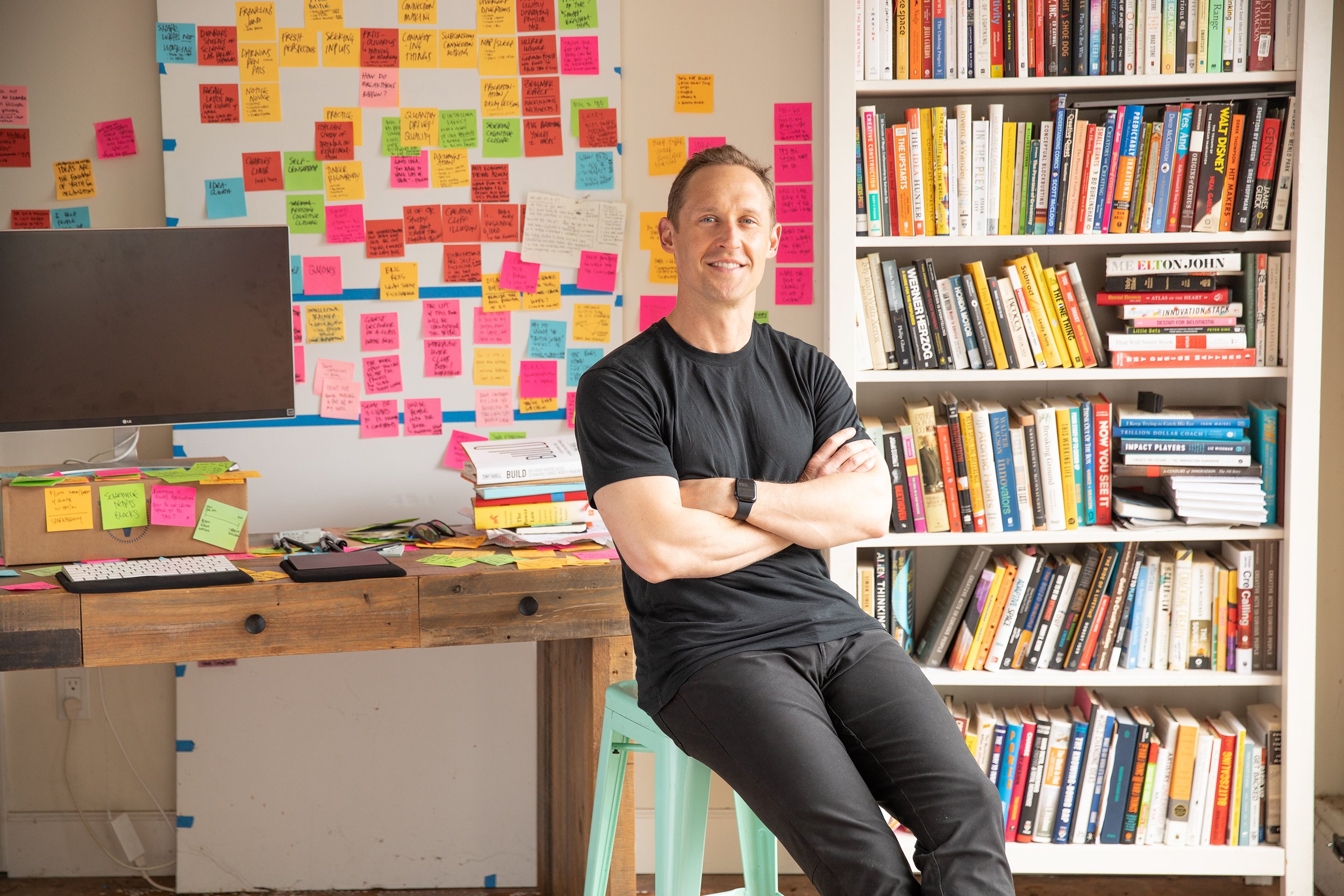
Methods of the Masters
A blog on the art & science of creative action.
Don’t Avoid Failure
What if eliminating failure reduces the likelihood of a breakthrough? There’s lots of research that suggests that’s the case.
Cultivate Broad Correspondence
Charles Darwin wrote an astounding 15,000 letters to over 230 collaborators across more than 10 different scientific fields. He understood the value of sharing partially-formulated ideas.
Set Obscene Deadlines
Some of the most creative people I know — from Lin Manuel-Miranda to Whitney Burks — share a common, creative secret: “obscene, ostentatious deadlines.”
Delay Decisions
One of the most famous studies of creativity was conducted by a former spy-master. The insights he pioneered about productive, effective creativity never cease to surprise…
Keep The Night Watch
B.F. Skinner’s strict working habits reveal not only how he became such a prodigious writer, but also how he became such an inventive researcher: he made the most of his nights!
Keep A Junk Pile
How do you increase the velocity of experimentation? According to Thomas Edison, “To invent, you need a good imagination and a pile of junk.”
Make Scrappy Experiments
Innovators from Edison to Netflix teach us that while every innovator should know how to craft clever experiments, yet one clever experiment is hardly sufficient… you’ve got to get scrappy.
Commission A Portfolio
We tell students at Stanford to create portfolios of early stage directions for a simple reason: it increases the likelihood of success. Research shows that we’re unlikely to select our highest-potential idea.
Encourage Youth to Explore
A theme has emerged in my study of breakthrough thinkers: the role that parents play in shaping aspirations. Breakthrough parents plant bold dreams in their kids’ hearts!
Have Lots More Ideas
Linus Pauling succinctly describes the essence of productive creativity: “The best way to have a good idea is to have lots of ideas.” Sounds simple enough. But just how many is “lots”?
Be Scientific
Entrepreneurial endeavors are fraught with risk. Rigorous, scientific experimentation is the best way to resolve the uncertainty.
Strengthen Your Memory
In her legendary memoir on writing and life, Anne Lamott shares a simple but crucial tip for avoiding one of the worst feelings that can ever befall an individual in the midst of creative pursuit.
Buck Convention
Plato, Newton, and Einstein all demonstrate that, when you’re on the brink of ushering in a new era, you’ve got to be willing to resist well-intentioned opposition.
Host A Listening Party
Bon Jovi took an unconventional approach to deciding which tracks to include on their third album. We should all be glad they did.
(Re-)Combine Things
When Bob Sutton told our class, “There is no such thing as a new idea…” I thought he was wrong. Turns out, I was.
Block A Creative Calendar
We are all busy. The most effective innovators wield their calendar to enhance their practice, rather than be a victim of their schedule. Here’s how to structure your time differently.
Actively Support Your Team
The stars of Second City recite a profoundly moving mantra before heading onstage together. It illuminates the nature of collaborative creativity.
Afford Ideas Care
Very few modern leaders have given ideas — or the creative process that conceives them — the kind of respect that Steve Jobs did. Sir Jony Ive vividly describes that care.
Take A Nano-Nap
Who doesn’t feel a little guilty taking a nap? But they’re a powerful means of tapping into the subconscious! Salvador Dalí’s “Slumber With A Key” relieves guilt, and the fear of wasted time.
Expect the Unexpected
When Thomas Edison invented the phonograph, it was nothing more than an absent-minded, off-handed comment during an after-hours diversion. Turns out, that’s how many insights are discovered.




















